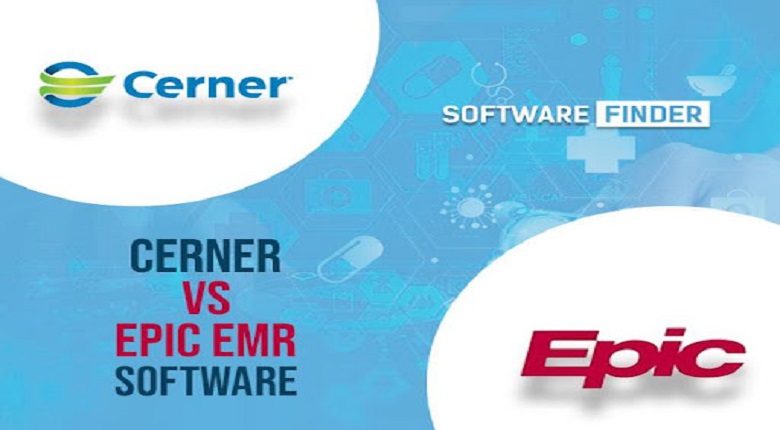- October 28, 2022
- No Comment
- 437
Epic vs. Cerner: Significant Differences Between Epic EMR and Cerner

Epic vs. Cerner have both recently made a splash in the healthcare industry and have been competing in the same market for years. Although their software may be the same, There are a number of Differences Between Epic EMR and Cerner. This article will discuss the TCO calculator, Cost, Interoperability, and Cloud-based software.
TCO Calculator
While there are some significant differences between Epic and Cerner, the biggest advantage of Cerner is its integrated system. The software allows you to integrate with other healthcare applications, such as EHRs. While Epic offers similar features, its interface is less aesthetically pleasing. While users of Epic will appreciate the built-in shortcuts, they may find the software more challenging to use than Cerner.
When comparing both Epic and Cerner, you should also consider cost. For example, Epic is a little more expensive than Cerner, but it is also more popular among larger healthcare organizations. While neither company has publicly disclosed its cost information, recent news about contract deals suggest that Epic is slightly more expensive than Cerner. Your exact costs will depend on what features you need, and the size of your organization.
Another difference between Epic and Cerner is the amount of support they provide for standardized standards. Epic, for example, supports multiple versions of FHIR. Many legacy healthcare systems will require support for all versions of FHIR, which is the gold standard for data exchange. Epic also requires you to set up a health app.
Cost
When it comes to the price of an EMR solution, Epic and Cerner have different pricing structures, but they both offer similar features. Both systems are designed for use in clinical and ambulatory care, and they have more than 50 specialty modules. Both are highly customizable and can securely share patient information across health systems.
While Cerner is the market leader, Epic was once the underdog. However, it has since emerged as a front-runner in enterprise clinical software and revenue software. Founded in 1979 by Judy Faulkner, Epic has systems in many major healthcare systems across the US. The company is privately held, and a large percentage of profits go back into product development. Additionally, the company is known for its quick response times.
Although they are similar in price, Epic is better-suited for larger medical centers. It has better interoperability and population health management functionality. It also has 24-hour support.
Interoperability
There are several differences between Epic and Cerner when it comes to the interoperability of their respective EHR systems. While both systems provide secure and reliable patient data exchange, the biggest difference is in the way they work. The following comparison outlines the pros and cons of each system.
In terms of cost, Epic is more expensive than Cerner. It also requires more HIPAA compliance auditing and healthcare compliance consulting services. Pricing for an Epic cloud-based EMR system ranges from $200 to $35,000 a month. This cost includes installation, training and other set-up expenses. However, some Epic vendors also charge separately for training. Whether you decide to purchase Epic or Cerner depends on your specific needs and budget.
Cerner has a greater focus on interoperability than Epic. It is a founding member of the Common Well Health Alliance and has developed standards for patient data exchange. Its products also enable integration between third-party applications and EHRs. Furthermore, it supports Reference Lab Networks, which allow you to send patient data to a variety of laboratories.
Cloud-Based Software
If you’re looking for the most effective EHR software list for your medical practice, there are many options available. While both companies offer similar features, you should consider the differences between the two for your specific needs. Both systems can help you track patient data, manage revenue cycle processes, and provide population health management, among other features.
Both Epic and Cerner offer mobile applications, including Canto and Haiku for tablets and Limerick for smartwatches. Cerner has the Powerchart Touch mobile application, which allows you to access your EHR on the go. It also lets you take notes, view patient charts, and upload pictures to the EHR.
Both Epic and Cerner are highly popular among hospitals and healthcare systems. However, they differ in price. Epic is more expensive than Cerner and may only be suitable for large health systems or affluent purchasers. However, if you’re looking for a system with more specialized features and better interoperability, Cerner is the better choice. It also offers better support and 24-hour customer service.





